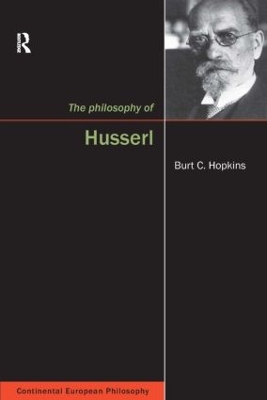As the founder of phenomenology, Edmund Husserl has been hugely influential in the development of contemporary continental philosophy. In The Philosophy of Husserl, Burt Hopkins shows that the unity of Husserl's philosophical enterprise is found in the investigation of the origins of cognition, being, meaning, and ultimately philosophy itself. Hopkins challenges the prevailing view that Husserl's late turn to history is inconsistent with his earlier attempts to establish phenomenology as a pure science and also the view of Heidegger and Derrida, that the limits of transcendental phenomenology are historically driven by ancient Greek philosophy.
Part 1 presents Plato's written and unwritten theories of eide and Aristotle's criticism of both. Part 2 traces Husserl's early investigations into the formation of mathematical and logical concepts and charts the critical necessity that leads from descriptive psychology to transcendentally pure phenomenology. Part 3 investigates the movement of Husserl's phenomenology of transcendental consciousness to that of monadological intersubjectivity. Part 4 presents the final stage of the development of Husserl's thought, which situates monadological intersubjectivity within the context of the historical a priori constitutive of all meaning. Part 5 exposes the unwarranted historical presuppositions that guide Heidegger's fundamental ontological and Derrida's deconstructive criticisms of Husserl's transcendental phenomenology.
The Philosophy of Husserl will be required reading for all students of phenomenology.
- ISBN10 1844650111
- ISBN13 9781844650118
- Publish Date 1 December 2008
- Publish Status Active
- Publish Country GB
- Publisher Taylor & Francis Ltd
- Imprint Acumen Publishing Ltd
- Format Paperback
- Pages 290
- Language English
